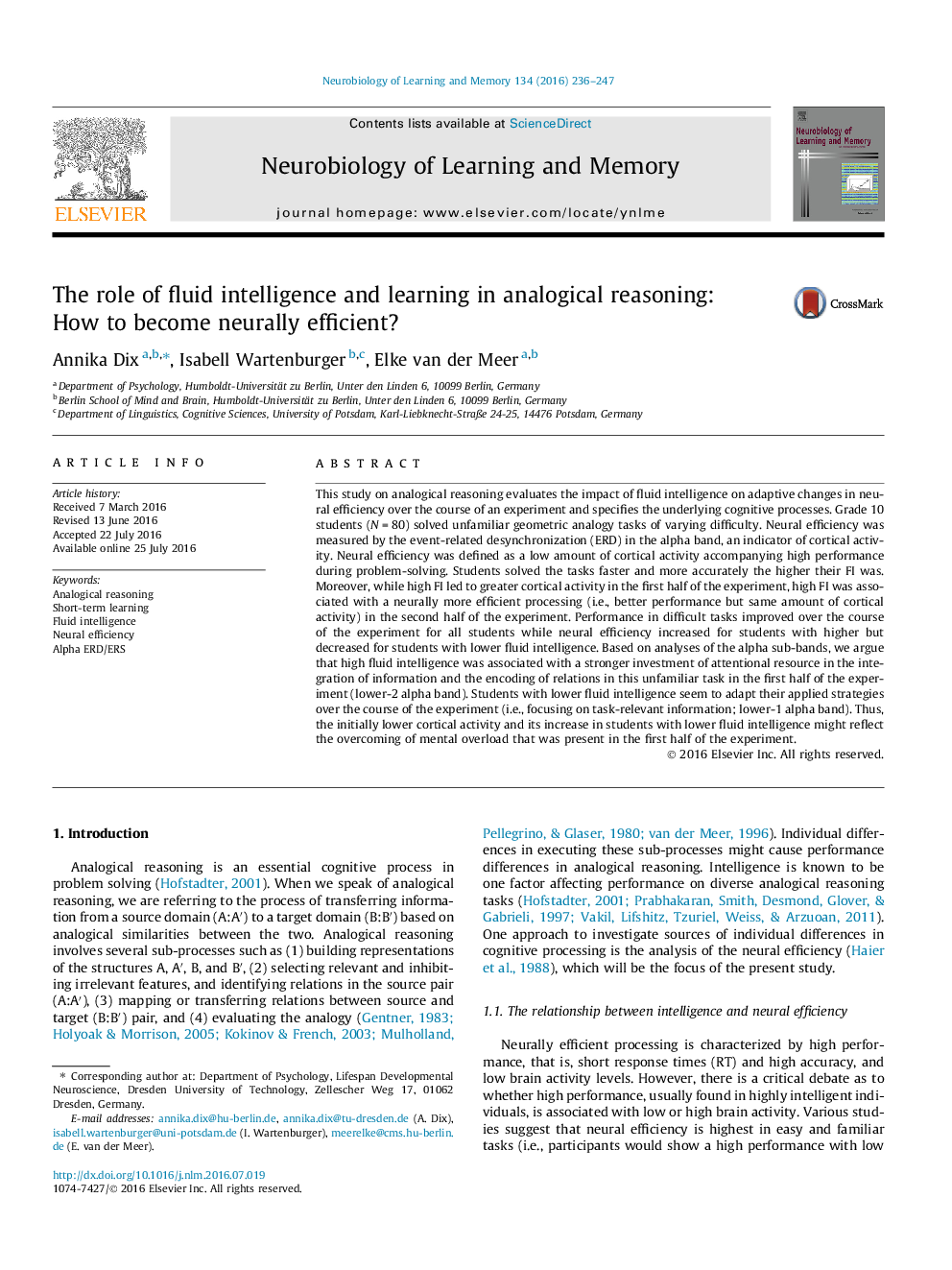| کد مقاله | کد نشریه | سال انتشار | مقاله انگلیسی | نسخه تمام متن |
|---|---|---|---|---|
| 5043267 | 1475140 | 2016 | 12 صفحه PDF | دانلود رایگان |
- High fluid intelligence (FI) and learning cause fast, accurate analogical reasoning.
- Analyzing narrow alpha bands suggests an impact of FI on relational encoding.
- For low FI, initially low cortical activity points to mental overload in hard tasks.
- Learning-related activity increases might reflect an overcoming of mental overload.
- For high FI, learning led to an activity decrease (increase in neural efficiency).
This study on analogical reasoning evaluates the impact of fluid intelligence on adaptive changes in neural efficiency over the course of an experiment and specifies the underlying cognitive processes. Grade 10 students (NÂ =Â 80) solved unfamiliar geometric analogy tasks of varying difficulty. Neural efficiency was measured by the event-related desynchronization (ERD) in the alpha band, an indicator of cortical activity. Neural efficiency was defined as a low amount of cortical activity accompanying high performance during problem-solving. Students solved the tasks faster and more accurately the higher their FI was. Moreover, while high FI led to greater cortical activity in the first half of the experiment, high FI was associated with a neurally more efficient processing (i.e., better performance but same amount of cortical activity) in the second half of the experiment. Performance in difficult tasks improved over the course of the experiment for all students while neural efficiency increased for students with higher but decreased for students with lower fluid intelligence. Based on analyses of the alpha sub-bands, we argue that high fluid intelligence was associated with a stronger investment of attentional resource in the integration of information and the encoding of relations in this unfamiliar task in the first half of the experiment (lower-2 alpha band). Students with lower fluid intelligence seem to adapt their applied strategies over the course of the experiment (i.e., focusing on task-relevant information; lower-1 alpha band). Thus, the initially lower cortical activity and its increase in students with lower fluid intelligence might reflect the overcoming of mental overload that was present in the first half of the experiment.
Journal: Neurobiology of Learning and Memory - Volume 134, Part B, October 2016, Pages 236-247
